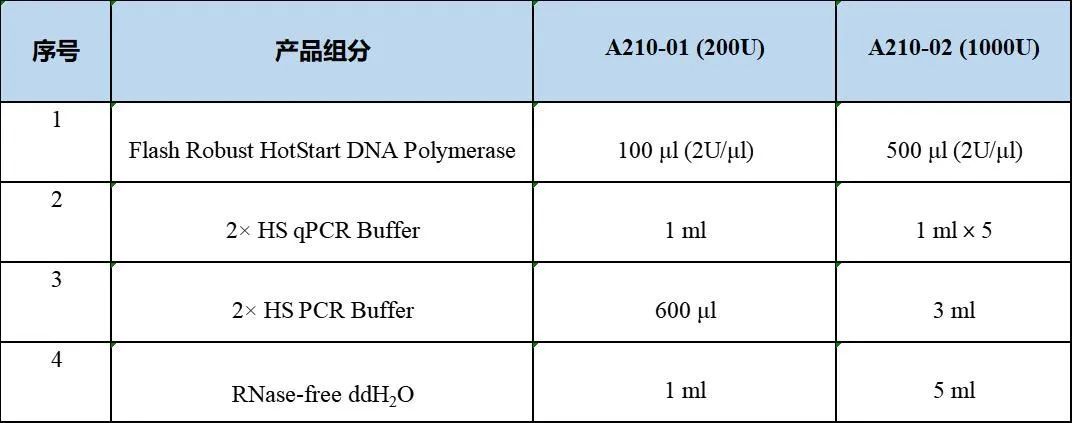
[New product] Flash Robust hot start DNA polymerase, something you don't know
1) Endogenous components of the sample itself, such as hemoglobin, immunoglobulin G, Lactoferrin, etc.
2) Exogenous, extract components from reagents or consumables, such as phenol, chloroform, ETDA, heparin, or citrate.
In PCR reactions, inhibitors can directly bind to Taq enzymes, affecting their active groups, and many cofactors of Taq enzymes may also be the target of PCR inhibitors. For example, many PCR inhibitors can bind to Mg2+, thereby reducing Mg2+activity or hindering its binding to polymerase and inhibiting PCR reactions. In order to solve the interference problem of inhibitors in PCR experiments, Jifan has launched a super resistant enzyme that can be compatible with multiple complex templates.
超闪抗逆热启动DNA聚合酶
Flash Robust HotStart DNA Polymerase
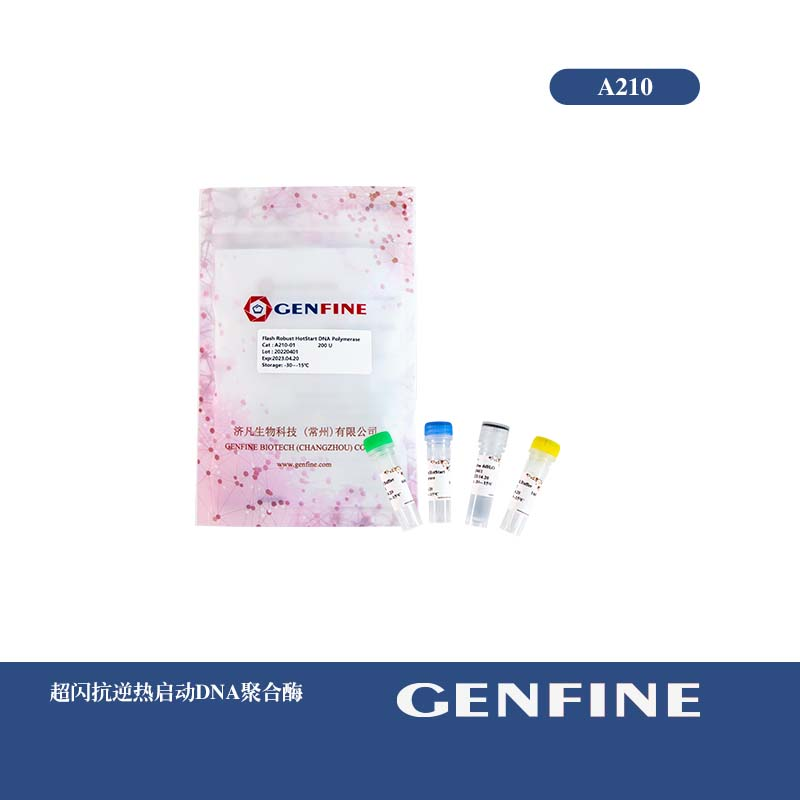
Product Introduction:
This product is a new type of hot start polymerase derived from wild-type Taq Pol through targeted modification, which has strong resistance to blood and PCR inhibitors. Adopting dual antibody blocking, it has ultra-high amplification efficiency, good amplification sensitivity, and specificity. The product is heated at the pre denaturation temperature for 30 seconds, and the blocking antibody can completely inactivate, releasing DNA polymerase activity.
Product features:
Ultra fast amplification: The amplification speed of fragments within 3kb of complex template amplification can reach 5-10 seconds/kb, and the amplification speed of simple template amplification can reach 1 second/kb.
Super stress resistance: It can tolerate a variety of high concentration inhibitors, such as EDTA, Guanidinium chloride, heparin, Sodium acetate, etc.
Ultra high sensitivity: PCR&qPCR can achieve effective amplification of individual copy numbers.
Direct expansion of blood: can effectively expand 20% of blood volume (qPCR method).
Performance demonstration:
It is resistant to a variety of high concentration inhibitors, such as EDTA, Guanidinium chloride, heparin, Sodium acetate, etc. It can be used for direct expansion of blood and can effectively expand a 20% proportion of whole blood samples.
Impurity tolerance test
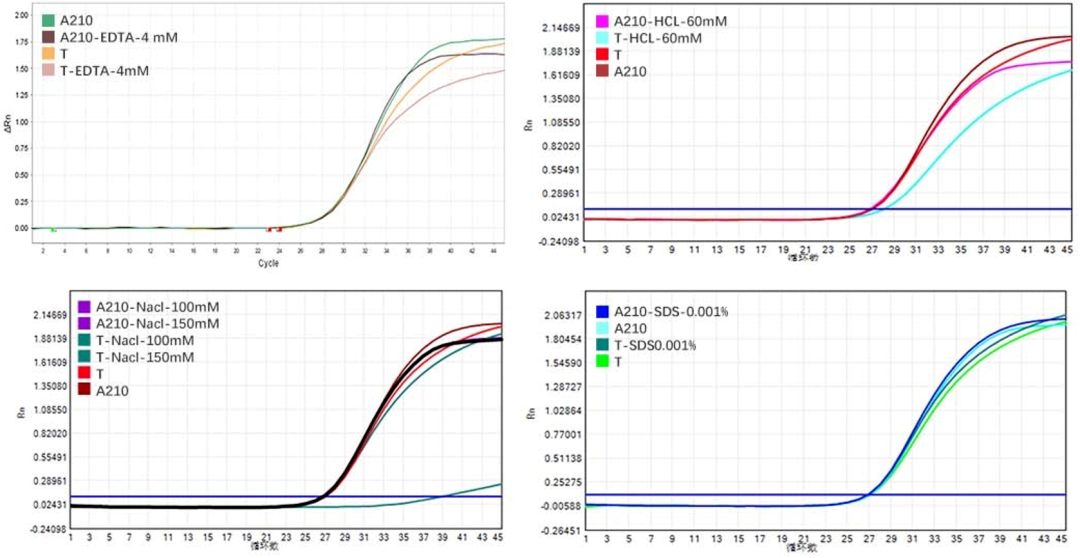
Using non plague positive blood for direct blood expansion, A210 can amplify 20% of the blood sample, while the competitor has no amplification. The results are as follows:
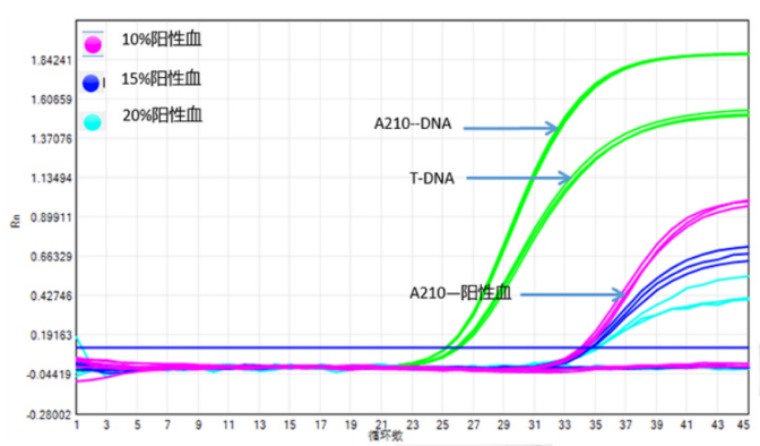
In the plasma direct expansion qPCR system, A210 can amplify 30% of plasma samples.
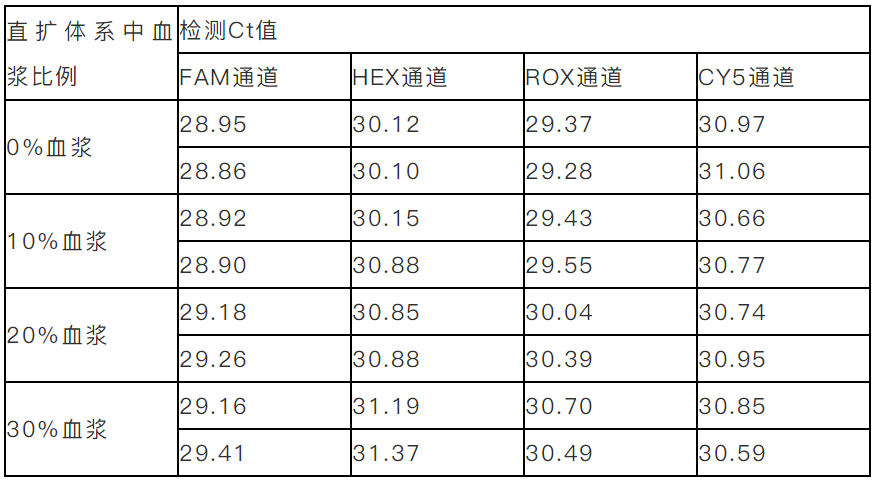
Ordering Information:
